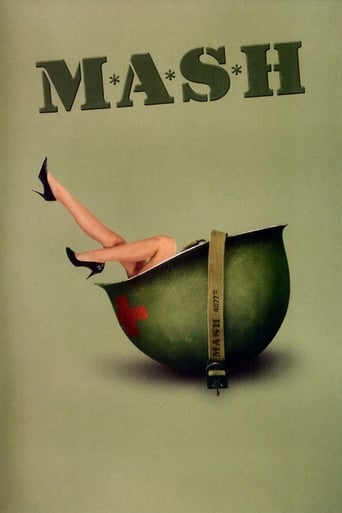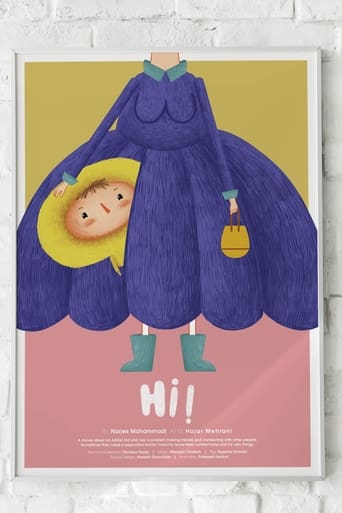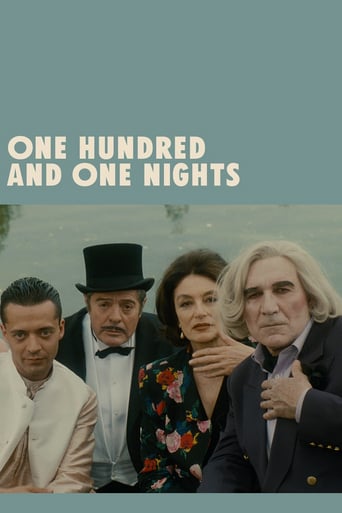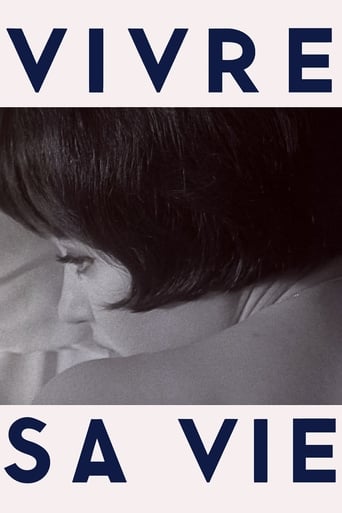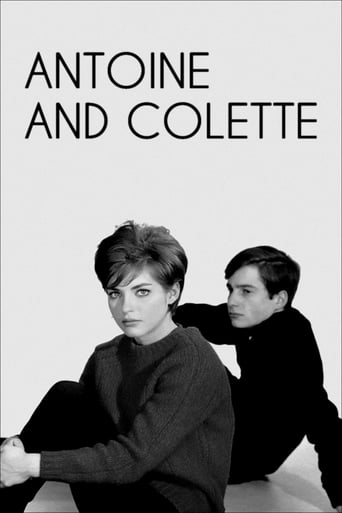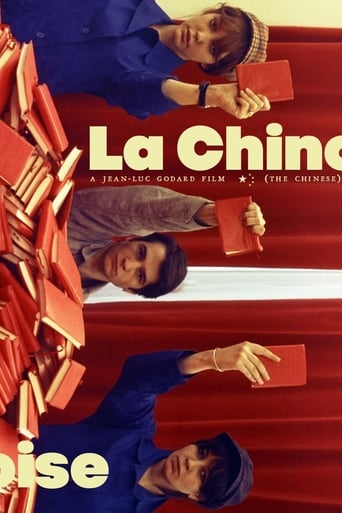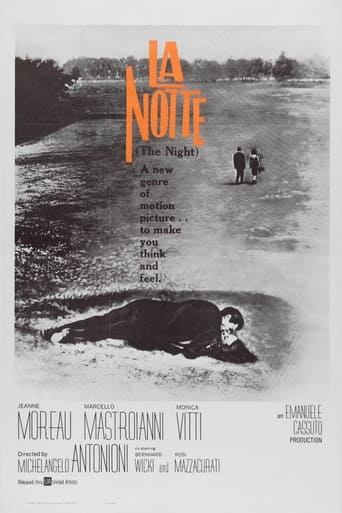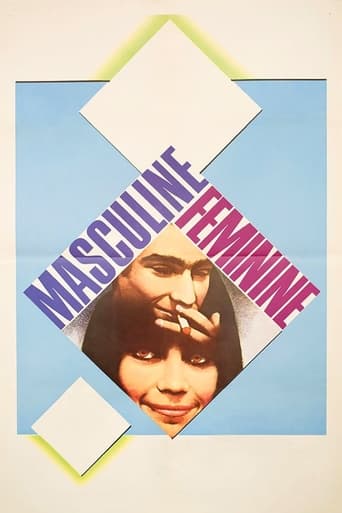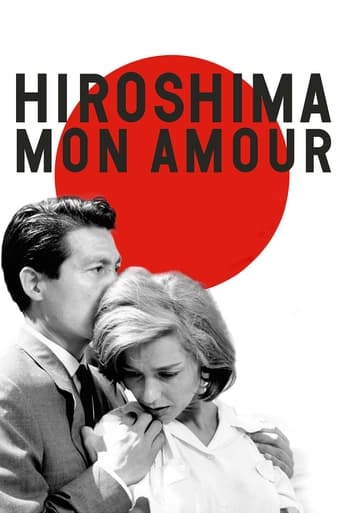


Hiroshima Mon Amour
The deep conversation between a Japanese architect and a French actress forms the basis of this celebrated French film, considered one of the vanguard productions of the French New Wave. Set in Hiroshima after the end of World War II, the couple -- lovers turned friends -- recount, over many hours, previous romances and life experiences. The two intertwine their stories about the past with pondering the devastation wrought by the atomic bomb dropped on the city.
-
- Cast:
- Emmanuelle Riva , Eiji Okada , Pierre Barbaud , Bernard Fresson


Similar titles
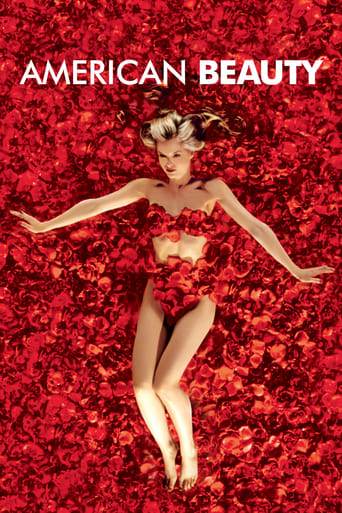
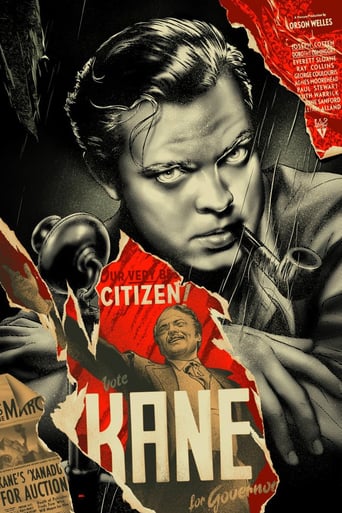
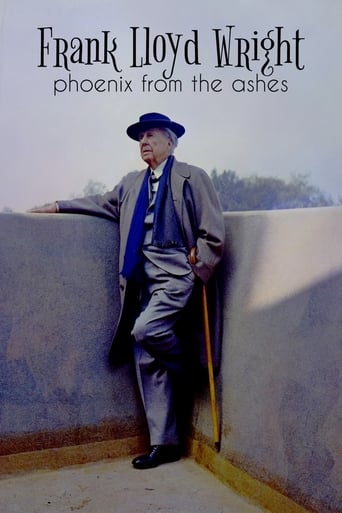
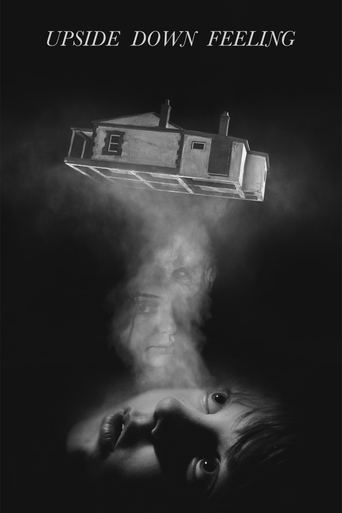
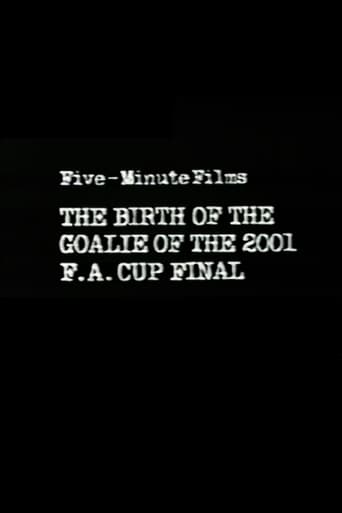
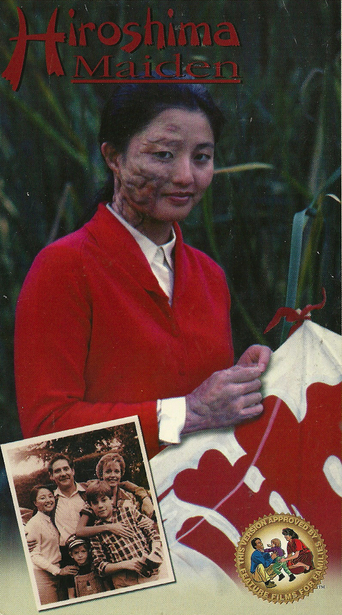
Reviews
Why so much hype?
Simply A Masterpiece
When a movie has you begging for it to end not even half way through it's pure crap. We've all seen this movie and this characters millions of times, nothing new in it. Don't waste your time.
By the time the dramatic fireworks start popping off, each one feels earned.
Hiroshima Mon Amour is brilliantly made and brilliantly acted, with a thoughtful, poetic script by the great French writer, Marguerite Duras. Its images are lyrical, disturbing, fascinating, and its anti-war message is profound and still frighteningly relevant. But in terms of strict entertainment...Any film which begins with abstracted images of the entwined body parts of human lovers, slowly becoming encrusted with ash and (presumably) atomic fallout... and then spends an obscure 15 minutes arguing about the death and disfigurement of multitudes during the atomic bomb blast in Hiroshima, and the nature of memory and forgetfulness... well, you realize immediately that this movie isn't set up to go anyplace fun. Unless your idea of "fun" is witnessing someone else's graphic misery without the cleansing catharsis that accompanies a more conventional tragedy. Hey, some people enjoy that kind of thing! Not me, but to each his/her own.Despite a structure which is famous for meandering through time, the film's narrative is fairly cogent and non-confusing, which is a plus. But the central illicit, inter-racial affair between a French actress and the Japanese architect whom she hooks up with during a film shoot in Hiroshima... It doesn't really make any sense. From the tiny acorn of a chance hookup, grows a mad-passionate love affair based almost entirely on memories dredged from the actress' past, which she disgorges to the architect, rather like a colorless Scheherezade, as she loses all rational connection to the present, conflating a youthful indiscretion with a deceased German soldier (and her subsequent descent into madness) with the non-happenings surrounding her current Japanese amour. German, Japanese... clearly, she can't tell these Axis races apart! I understand that the point of the film was not to create strict narrative coherence, but rather to delve into some kind of symbolic and psychic clash between this cold-yet-overwrought union of a French woman and her obsessed Japanese lover, and the horrors of War. But, despite some moments which are outright absurdist in effect, the overall tone of the film is grinding in its humorlessness. As I watched the characters fatalistically surrendering to their doom, all I could think was, "man, that Marguerite Duras must have been a drag to be romantically involved with." I mean, the Duras script, for all it's poetic symbolism and intellectual brilliance, etc etc, tells a story of people who are criminally passive and hopelessly clingy. Love seems to transform her characters into mere victims, of love, of war, of life, masochistically reveling in their own operatic suffering while doing virtually nothing. As the nameless SHE recalls her own suffering during her madness, scraping her fingertips off on the saltpeter-encrusted walls of her parent's cellar-prison, then receiving validation of existence by luxuriously sucking her own blood from her ravaged hands because otherwise she is utterly alone, all I could think was... Oh brother! This character is so badly damaged, how did she ever manage to get happily married before she embarked on this chance affair in Japan? The imagery is fabulous and intense, but are these really human beings that could have plausibly embarked on a journey together? One human being, actually, because the Japanese architect is little more than a handsome cipher of "love"... love, in this story, apparently meaning the obsession that arises from the act of physical copulation, an experience which is equated with destruction of the nuclear holocaust variety. So, Marguerite Duras clearly had issues surrounding her expression and experience of sexuality. And the film betrays little in the way of empathy, either, the characters are infused with an undercurrent of intense selfishness as they struggle to connect. HE is constantly delving into HER unhappy past even though it can give neither of them any pleasure or joy. The more HE delves, the more SHE becomes hopelessly entangled, and the more obsessed HE becomes... until the cold and bitter end.At least in an opera, you get to revel in an outpouring of passion! In this bitter pill, everything is so cold and humorless... well, it really is difficult to understand why people wax enthusiastic over this film so much. There is much here to ADMIRE... but not much to love, in my opinion. Except intellectually, because the film is awash with symbolism and thought-provoking moments. As a viewing experience for the average intellectual, such as myself, however, I felt that once was enough. The time jumping and abstractions and other critically lauded elements of this movie have been done better and more entertainingly by others. Though this is the most emotionally powerful anti-nuclear statement I've ever seen, for which, as someone who had much of his family die in the Hiroshima nuclear blast, I am profoundly grateful.
Despite having won the Criterion DVD on Ebay a few years ago,I have somehow never got round to loading up my first ever "Left Bank" title.Taking a look at IMDbs Classic Film board,I spotted an excellent post about the film from a fellow IMDber,which led to me deciding that it was time I finally took a look at the Left Bank.The plot:Going to Hiroshima to star in a film in an anti-War title,French actress Elle finds the production to suffer long delays.As filming continues to be delayed,Elle begins an affair with an architect called Lui.As Elle shares her memories of the "victory" of the end of WWII,Lui reveals to Elle that she has no "real" memories of the Hiroshima bombing,as he begins to reveal everything that he witnessed in the aftermath of the attack. Gradually developing feelings of love & intimacy towards Lui,Elle begins to face the dark near-forgotten memories hidden in her past. View on the film:Opening with an extraordinary shot featuring the bodies of two people entwined having sex, Alain Resnais and cinematographers Michio Takahashi & Sacha Vierny take any shade of lust or sensuality out of the scene,as Resnais and the cinematographers focus on the side angles of the characters bodies dehumanises them,and gives the lovers the appearance of being part of the decaying nuclear wasteland that Hiroshima is left in.Originally planning to make the movie be a documentary about the Hiroshima bombing, Resnais and editors Jasmine Chasney/ Henri Colpi & Anne Sarraute give the title a horrifying atmosphere by precisely crossing the French New-Wave cool with a documentary grittiness.With clever use archive newsreel footage Resnais looks into the eyes of the victims/survivors of the nuclear attack.Joining the couple at (what might be) the final stage of their relationship,Resnais superbly expresses the feeling of an aching love that they have for each other,by subtly featuring a "gap" between the lovers in each of the shots they share.Taking the first step to humanise the entwined couple by splashing a huge grin across Lui's face,the exquisite screenplay by Marguerite Duras gives the exchanges between Lui and Elle an extraordinary feeling of intimacy,thanks to the conversations that the couple have in bed featuring a raw, naturalistic quality. Skilfully going into Elle's past with fragmented flashbacks,Duras gradually builds a delicate psychological depth for Lui & Elle,with the flashbacks opening up the remembrance to the pains of love and death that Lui and Elle have each been unable to approach from their pasts.Despite not knowing any French before filming. (he learnt it during production!) Eiji Okada gives an extraordinary performance as Lui,with Okada perfectly revealing Lui's uncomfortable feelings on Elle's "memories" of the Hiroshima attack.Along with opening Lui's wounds,Okada displays Lui's longing for Elle in a poetic manner,with Okada detailed body language making the "gap" between Elle & Lui feel like one of not of inches,but miles.Slowly facing her memories of the past,an elegant Emmanuelle Riva gives an excellent performance as Elle,whose first love's loss is buried deep within her eyes by Riva. Introduced in the title laying in bed with Lui,Riva gives Elle a rich,warm chemistry with Lui,as Riva makes each look that Elle shares with Lui make her question the memories of the past and the relationship that she finds herself in,as Lui expresses his amour to Elle.
Before starting to write about my thoughts on the film, I need to say that Akira Kurosawa's one of the masterpieces, Rhapsody in August and Wong Kar Wai's masterpiece In The Mood for Love are two of my all time favorite movies. Hiroshima Mon Amour is similar with those movies in terms of theme and style both, but it cannot be as touching and impressive as those movies. Resnais overly uses voice over technique in this movie and after a while it becomes almost unbearable, because poetic structure surpasses realism. It is like the movie is built on memoirs, so you feel like the characters aren't there really. The movie is not only a love story, but also it tries to be an elegy for the tragedy, Hiroshima Nagasaki, however, the movie can't handle all these themes including the woman's past as the third story. So what is the movie about? A forbidden love story? A woman's past tragedies? An elegy for Hiroshima Nagazaki? or all? The film could be poetic, romantic, but it is not that subtle or deep or beautiful in my opinion. On Hiroshima Nagazaki, Rhapsody was much better. On love, Fa Yeung Nin Wa was much better. As for the actor, the actress and overall acting, I didn't know the male lead, also I didn't know that the female lead is Amour's great Emmanuelle Riva at that time, however, unfortunately I have to say that Riva'a acting in this movie was weak and the man was not better than her. It is interesting that Riva reminded me Monica Vitti, the most beautiful European actress ever along with Claudia Cardinale for me, but the funny thing is that I don't adore Mrs. Vitti's acting either. By the way, I believe that this movie is mostly for women, women's favorite movie, it rather affects women like Jodie Foster's The Brave One (as I know, some female audiences cheered up in the finale of that movie) Also, I couldn't empathize with the woman, I couldn't feel her, I couldn't empathize with the man either, probably the dead pan story telling. I couldn't feel the passion in the love story, in fact I couldn't see love in this film, in contrast I found it uninspired. The ceremony scene in the middle of the movie was memorable, it reminded me Rhapsody again and other than this, the only scene I found interesting and memorable was two walk separately in empty streets, neon lights on the buildings... I would want to learn more about the relationship of the couple, I would want to get to know them more. This is not a relationship movie, my big disappointment was partially because of this, I had expected a different, touching and deep relationship movie, but it was not. The movie doesn't focus on a certain theme and I couldn't decide whether the woman'a past was necessary or not? Because it changes everything. The love story isn't pretentious may be as the hype claims, but it is vapid and dull for sure (not like Fa Yeung Nin Wa) I am not a cinema historian, I am not a professional critic who feels obliged to be objective or I am not an audience who only considers technical aspects and cinematic breakthroughs and personally I look for emotion in movies and despite this film is considered to be one of the most romantic and poetic movies of all time, I couldn't find it.
This movie is boring. Marguerite Duras sucks. I've been in love and gotten freaky with lovers and it was not like this. It was a lot more interesting than this. Want to make a Hiroshima movie? Make a movie about the dude with the burned-off lips. Show a day in this guy's life. The woman played by Emmanuelle Riva is unbearable. The Japanese dude is happy he got a piece of Western tail. The whole thing feels like the fantasy of a hysterical, frigid woman. My life is sad. I have an incurable disease. I am depressed and when I go to the movies I want to see Life. I wanted to burn something after seeing this film. I am a man and when I see this kind of self-indulgent feminine sterility on screen it drives me crazy, just as I imagine it drives women crazy to see the male equivalent...stuff like Armageddon or whatever. There was a pretty girl in the theater and I would have liked for her to think I was poetic and sensitive but after an hour of "poetic" dialogue I walked out. The babe probably thought less of me. I don't need her anyway. Who am I kidding? Of course I need her.

